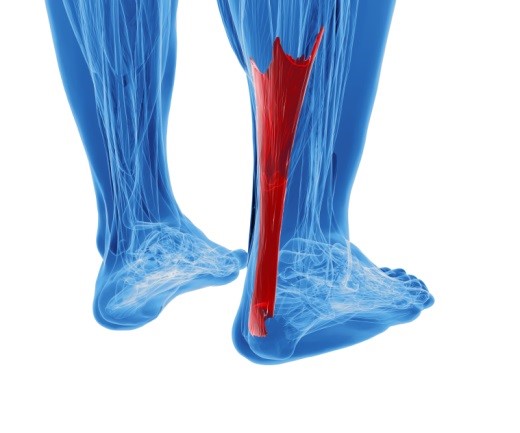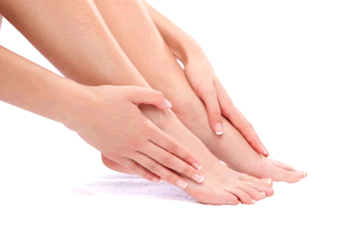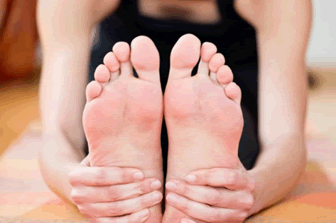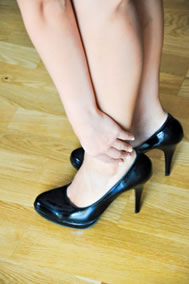Items filtered by date: December 2016
Achilles Tendonitis One of Many Foot and Ankle Injuries
 Known as the thick tendon that connects your calf muscles to your heel bone, the Achilles tendon allows you to do everyday activities such as walking and running. Insertional Achilles tendonitis is a condition of the Achilles tendon in which pain is experienced at the heel, and which can become chronic if left untreated. Non-insertional Achilles tendonitis can be described as a microscopic tearing of the fibers in the tendon. If the problem becomes chronic, a bone spur can eventually develop as the tendon thickens. If severe, the condition may require surgery.
Known as the thick tendon that connects your calf muscles to your heel bone, the Achilles tendon allows you to do everyday activities such as walking and running. Insertional Achilles tendonitis is a condition of the Achilles tendon in which pain is experienced at the heel, and which can become chronic if left untreated. Non-insertional Achilles tendonitis can be described as a microscopic tearing of the fibers in the tendon. If the problem becomes chronic, a bone spur can eventually develop as the tendon thickens. If severe, the condition may require surgery.
Achilles tendon injuries need immediate attention to avoid future complications. If you have any concerns, contact Dr. Michael E. Newman of Pennsylvania. Our doctor can provide the care you need to keep you pain-free and on your feet.
What is the Achilles Tendon?
The Achilles tendon is a tendon that connects the lower leg muscles and calf to the heel of the foot. It is the strongest tendon in the human body and is essential for making movement possible. Because this tendon is such an integral part of the body, any injuries to it can cause severe difficulties and should immediately be presented to a doctor.
What are the symptoms of an Achilles Tendon Injury?
There are various types of injuries that can affect the Achilles tendon. The two most common are Achilles tendinitis and ruptures of the tendon.
Achilles Tendinitis Symptoms
- Inflammation
- Dull to Severe Pain
- Increased blood flow to the tendon
- Thickening of the tendon
Rupture Symptoms
- Extreme pain and swelling in the foot
- Total immobility
Treatment and Prevention
Achilles tendon injuries are diagnosed by a thorough physical evaluation, which can include an MRI. Treatment involves rest, physical therapy, and in some cases, surgery. However, various preventative measures can be taken to avoid these injuries, such as:
- Thorough stretching of the tendon before and after exercise
- Strengthening exercises like calf raises, squats, leg curls, leg extensions, leg raises, lunges, and leg presses
If you have any questions please feel free to contact our offices located in Plymouth Meeting and Ambler, PA. We offer the newest diagnostic and treatment technologies for all your foot and ankle needs.
How to Tell If You Have Plantar Fasciitis
 If you’re experiencing stiffness and pain in the soles of your feet that typically becomes more prominent during the mornings, you may have plantar fasciitis. Plantar fasciitis can be described as a foot condition that results from overuse of the plantar fascia, the tissue that runs along the soles of your feet. Excessive stress on this area can lead to inflammation. Being overweight, having flat feet or high arches, pregnancy and improper footwear such as flip flops are also factors in the development of plantar fasciitis. Treat your condition by icing your feet, stretching your muscles and having proper rest by avoiding any strenuous activity.
If you’re experiencing stiffness and pain in the soles of your feet that typically becomes more prominent during the mornings, you may have plantar fasciitis. Plantar fasciitis can be described as a foot condition that results from overuse of the plantar fascia, the tissue that runs along the soles of your feet. Excessive stress on this area can lead to inflammation. Being overweight, having flat feet or high arches, pregnancy and improper footwear such as flip flops are also factors in the development of plantar fasciitis. Treat your condition by icing your feet, stretching your muscles and having proper rest by avoiding any strenuous activity.
Plantar fasciitis can be very painful and inconvenient. If you are experiencing heel pain or symptoms of plantar fasciitis, contact Dr. Michael E. Newman of Pennsylvania. Our doctor can provide the care you need to keep you pain-free and on your feet.
What is Plantar Fasciitis?
Plantar fasciitis is the inflammation of the thick band of tissue that runs along the bottom of your foot, known as the plantar fascia, and causes mild to severe heel pain.
What Causes Plantar Fasciitis?
· Excessive running
· Non-supportive shoes
· Overpronation
· Repeated stretching and tearing of the plantar fascia
How Can It Be Treated?
· Conservative measures – anti-inflammatories, ice packs, stretching exercises, physical therapy, orthotic devices
· Shockwave therapy – sound waves are sent to the affected area to facilitate healing and are usually used for chronic cases of plantar fasciitis
· Surgery – usually only used as a last resort when all else fails. The plantar fascia can be surgically detached from the heel
While very treatable, plantar fasciitis is definitely not something that should be ignored. Especially in severe cases, speaking to your doctor right away is highly recommended to avoid complications and severe heel pain. Your podiatrist can work with you to provide the appropriate treatment options tailored to your condition.
If you have any questions please feel free to contact our offices located in Plymouth Meeting and Ambler, PA. We offer the newest diagnostic and treatment technologies for all your foot and ankle needs.
Preventing Ingrown Toenails
 Ingrown toenails are a common foot problem and occur when the toenail begins growing into the skin on its sides. This, consequently, can lead to infections, swelling and irritation. You can prevent ingrown toenails by cutting your toenails straight across from end to end. Avoid improperly-fitting shoes, as they can squeeze your toes, potentially impacting how your toenails grow. Contact sports such as soccer that require an object to constantly impact the feet can also lead to an increased chance of ingrown toenails. If you think you may have an ingrown toenail, seek the advice of your podiatrist. While at home, soak your toenail in warm water with salt and apply antibiotic ointment afterwards. Avoid any tight bandages or socks.
Ingrown toenails are a common foot problem and occur when the toenail begins growing into the skin on its sides. This, consequently, can lead to infections, swelling and irritation. You can prevent ingrown toenails by cutting your toenails straight across from end to end. Avoid improperly-fitting shoes, as they can squeeze your toes, potentially impacting how your toenails grow. Contact sports such as soccer that require an object to constantly impact the feet can also lead to an increased chance of ingrown toenails. If you think you may have an ingrown toenail, seek the advice of your podiatrist. While at home, soak your toenail in warm water with salt and apply antibiotic ointment afterwards. Avoid any tight bandages or socks.
Ingrown toenails can become painful if they are not treated properly. For more information about ingrown toenails, contact Dr. Michael E. Newman of Pennsylvania. Our doctor can provide the care you need to keep you pain-free and on your feet.
Ingrown Toenails
Ingrown toenails occur when a toenail grows sideways into the bed of the nail, causing pain, swelling, and possibly infection.
Causes
- Bacterial infections
- Improper nail cutting such as cutting it too short or not straight across
- Trauma to the toe, such as stubbing, which causes the nail to grow back irregularly
- Ill-fitting shoes that bunch the toes too close together
- Genetic predisposition
Prevention
Because ingrown toenails are not something found outside of shoe-wearing cultures, going barefoot as often as possible will decrease the likeliness of developing ingrown toenails. Wearing proper fitting shoes and using proper cutting techniques will also help decrease your risk of developing ingrown toenails.
Treatment
Ingrown toenails are a very treatable foot condition. In minor cases, soaking the affected area in salt or antibacterial soaps will not only help with the ingrown nail itself, but also help prevent any infections from occurring. In more severe cases, surgery is an option. In either case, speaking to your podiatrist about this condition will help you get a better understanding of specific treatment options that are right for you.
If you have any questions please feel free to contact our offices located in Plymouth Meeting and Ambler, PA. We offer the newest diagnostic and treatment technologies for all your foot and ankle needs.
Long Term Concerns can arise from High Heels
 Although high heels may be a popular fashion staple, if worn for long periods of time, heels can damage the feet as pressure is increased on the balls of the feet and the toes are squeezed together. Long-term issues can also result from wearing high heels, such as bunions, hammertoe, nerve pain, corns and blisters. Thinner and higher heels “will increase the chances of ankle sprains and other soft tissue injuries, as well as alter your posture which can lead to knee and lower back pain.” Thicker and lower heels are safer as the foot loses less balance and puts less pressure on the balls of our feet.
Although high heels may be a popular fashion staple, if worn for long periods of time, heels can damage the feet as pressure is increased on the balls of the feet and the toes are squeezed together. Long-term issues can also result from wearing high heels, such as bunions, hammertoe, nerve pain, corns and blisters. Thinner and higher heels “will increase the chances of ankle sprains and other soft tissue injuries, as well as alter your posture which can lead to knee and lower back pain.” Thicker and lower heels are safer as the foot loses less balance and puts less pressure on the balls of our feet.
High heels have a history of causing foot and ankle problems. If you have any concerns about your feet or ankles, contact Dr. Michael E. Newman of Pennsylvania. Our doctors can provide the care you need to keep you pain-free and on your feet.
Effects of High Heels on the Feet
High heels are popular shoes among women because their style and societal appeal. Despite this, they can still cause many health problems if worn too frequently.
What parts my body will be affected by high heels?
- Ankle Joints
- Achilles Tendon – may shorten and stiffen with prolonged wear
- Balls of the Feet
- Knees – heels cause the knees to bend constantly, creating stress on them
- Back – they decrease the spine’s ability to absorb shock, which may lead to back pain. Also, the vertebrae of the lower back may compress.
What kinds of foot problems can develop from wearing high heels?
- Corns
- Calluses
- Hammertoe
- Bunions
- Morton’s Neuroma
- Plantar Fasciitis
How can I still wear high heels and maintain foot health?
If you want to wear high heeled shoes, make sure that you are not wearing them every day, as this will help prevent long term physical problems. Try wearing thicker heels as opposed to stilettos to distribute weight more evenly across the feet. Always make sure you are wearing the proper shoes for the right occasion, such as sneakers for exercising. If you walk to work, try carrying your heels with you and changing into them once you arrive at work. Adding inserts to your heels can help cushion your feet and absorb shock. Full foot inserts or metatarsal pads are available.
If you have any questions please feel free to contact our office located in Plymouth Meeting and Ambler, PA. We offer the newest diagnostic and treatment technologies for all your foot and ankle needs.
